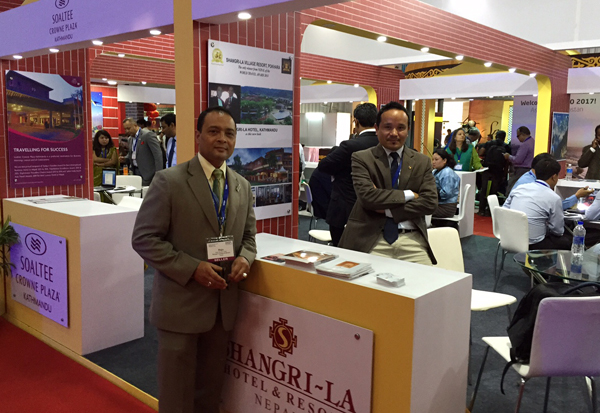Hotels cut services to deal with fuel shortage
If you visit Kathmandu Guest House, one of the oldest hotels in Thamel, for lunch, all you can order are sandwich and salad.
The three-star hotel, which used to serve a range of dishes from Continental and Chinese to Indian during lunch hours, has lately downsized its lunch menu to deal with the severe shortage of petroleum products triggered by protests in the Tarai and irregular supply from India, the sole supplier of petroleum products for Nepal.
“However, no change has been made to breakfast and dinner menus — although some of the items served using clay ovens have been removed,” an official of the hotel told The Himalayan Times on condition of anonymity.
Like Kathmandu Guest House, many hotels in Kathmandu Valley have started downsizing their food menu or even closing down their restaurants, as severe shortage of cooking gas has prevented them from catering normal services.
“Many of the hotels are tapping old stock of liquefied petroleum gas to serve customers,” said CEO of the Hotel Association of Nepal, Prabesh Aryal. “But if the situation prolongs for a week, most of the hotels will find it difficult to fulfil various service commitments.”
Hotels in the Valley are facing this situation at a time when they had just started recovering from devastating earthquakes of April and May.
“Earthquakes prompted many foreign visitors to cancel their trips to Nepal. But lately hotels had started receiving positive inquiries, and room occupancy was steadily going up. Now, the shortage of petroleum products is threatening to jeopardise that recovery, because hotels won’t be able to serve customers if there is no cooking gas or fuel to conduct sightseeing. This is affecting reservations,” Aryal said.
Currently, room occupancy rate in most of the hotels in the Valley stands at 25 per cent to 35 per cent, as per the HAN.
“Such a low occupancy rate during the peak season means, most of the hotels will incur losses in 2015, because we have already suffered huge losses during previous tourist season in April,” said BK Shrestha, chairman of Radisson Hotel.
Hotel occupancy generally hovers around 80 per cent to 90 per cent during the tourist season in autumn.
While hotel business is not brisk, the management has to continue fulfilling other obligations, which include paying salary to staff. And with the arrival of Dashain — the biggest festival of Hindus in Nepal — hotels also have to extend a month’s salary as bonus to their staff.
“With all these overhead costs and falling room occupancy rates, many hotels won’t be in a position to service the debt,” Shrestha said, adding,
“Nepal Rastra Bank should talk with banking institutions and reduce the interest on loans acquired by hotels and prolong the debt repayment period by three to six months.”






